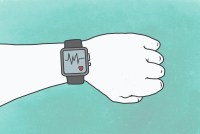Latest Morning Briefing Stories
KHN’s ‘What the Health?’: A Conversation With Peter Lee on What’s Next for the ACA
Amid covid-19, the potential overturn of Roe v. Wade, and a war in Europe, the Affordable Care Act has been flying under the radar in 2022. But this will be a pivotal year for the federal health law. Unless Congress acts, millions of Americans could see their costs for coverage rise dramatically as expanded subsidies expire. At the same time, the end of the public health emergency could boost the uninsured rate as states disenroll people from Medicaid. Peter Lee, who recently stepped down as the first executive director of the largest state-run ACA insurance marketplace, Covered California, has thought long and hard about how the ACA came to be, how it’s been implemented, and what should happen to it now. He joins host and KHN chief Washington correspondent Julie Rovner for a wide-ranging discussion on the state of the ACA.
Anti-Vaccine Ideology Gains Ground as Lawmakers Seek to Erode Rules for Kids’ Shots
Legislators in Kansas are pushing bills to expand exemptions for school vaccines, allowing religious exemptions for all vaccine requirements in the state’s schools without families having to provide any proof of their beliefs. Similar bills are being introduced around the nation as the anti-vaccine movement gains traction among politicians.
Judge’s Ruling on the CDC Mask Mandate Highlights the Limits of the Agency’s Power
A recent court decision that overturns one of the Centers for Disease Control and Prevention’s few pandemic rules — masks required on public transportation — spotlights how little power remains in federal hands to enforce public health protections.
Heartbeat-Tracking Technology Raises Patients’ and Doctors’ Worries
As Google joins Apple in adding heart rhythm sensors to wearable devices, and millions of people gain access to alerts that flag when their hearts might have skipped a beat, cardiologists are wondering what to do with all the information.
Abortion Clinic on Texas-Mexico Border Faces Unique Legal and Cultural Challenges
Just as Texas has tightened its laws surrounding abortion, Mexico has gone the opposite direction, compelling people to seek potentially less-safe procedures south of the border.
Why Cheap, Older Drugs That Might Treat Covid Never Get Out of the Lab
The hydroxychloroquine and ivermectin fiascoes have soured many doctors on repurposing drugs for covid. A few inexpensive old drugs may be as good as some of the new antivirals, but they face complex obstacles to get to patients.
As Eating Disorders Spike During Pandemic, Rural Treatment Options Lag
More people have visited emergency departments for eating disorders during the pandemic. Those living in rural areas have limited pathways to treatment.
Better Ventilation Can Prevent Covid Spread. But Are Companies Paying Attention?
The research is clear that improving indoor air quality is an essential tool in stemming the spread of covid and a host of other diseases. But companies have to be willing to invest.
Attendance Plummets at LA Covid Vaccination Events
Across Los Angeles County, few people are showing up at covid vaccination drives even though nearly 2 million residents remain unvaccinated.
Washington State Retools First-in-the-Nation Long-Term Care Benefit
The WA Cares Fund program, which would provide workers in the state a lifetime benefit of $36,500, was set to begin collecting money through a payroll tax in January, but it was delayed while lawmakers made adjustments to address equity problems. Now the payroll deductions will begin in July 2023, and benefits will become available in 2026.
Battle Lines Are Drawn Over California Deal With Kaiser Permanente
A controversial proposal to grant HMO giant Kaiser Permanente a no-bid statewide Medicaid contract is headed for its first legislative hearing amid vocal opposition from a coalition of counties, competing health plans, community clinics, and a national health care labor union.
How the Test-to-Treat Pillar of the US Covid Strategy Is Failing Patients
The federal “test-to-treat” program was designed to be a one-stop shop for people to get tested for covid and to receive treatment. But as covid cases rise again, many communities have no participating locations, and website bugs make it difficult to book an appointment at the biggest participant.
It’s Not Just Physicians and Nurses. Veterinarians Are Burning Out, Too.
Empathy overload and compassion fatigue contribute to the mental health woes of veterinarians, who are more likely than other Americans to attempt suicide. And with 23 million families adopting pets during the pandemic, vets’ stress burden is no doubt heavier now.
KHN’s ‘What the Health?’: News You Might Have Missed
Congress is in recess, so the slower-than-average news week gives us a chance to catch up on underreported topics, like Medicare’s coverage decision for the controversial Alzheimer’s disease drug Aduhelm and ominous new statistics on drug overdose deaths and sexually transmitted diseases. Margot Sanger-Katz of The New York Times, Joanne Kenen of Politico and the Johns Hopkins Bloomberg School of Public Health, and Alice Miranda Ollstein of Politico join KHN’s Julie Rovner to discuss these issues and more. Plus, for extra credit, the panelists recommend their favorite health policy stories of the week they think you should read, too.
Persistent Problem: High C-Section Rates Plague the South
Some U.S. states have reduced use of the procedure, including by sharing C-section data with doctors and hospitals. But change has proved difficult in the South, where women are generally less healthy heading into their pregnancies and maternal and infant health problems are among the highest in the U.S.
A Year In, Montana’s Rolled-Back Public Health Powers Leave Some Areas in Limbo
Montana lawmakers stripped authority from local health boards, leading to power struggles between cities and counties and leaving public health officers to wonder to whom they answer.
How a Former Catholic Priest Is Navigating a California Medicaid Plan Through Big Changes
Michael Hunn left the clergy and became a hospital and health system executive. He’s been named CEO of CalOptima, Orange County’s Medi-Cal health insurance plan for low-income residents, and his spiritual background is helping him guide the publicly run plan into the future.
A Travel Nurse Leaves Fears of Hospital Drug Tampering Across Three States
Kentucky nurse Jacqueline Brewster is accused of tampering with opioids in Tennessee and West Virginia, possibly contaminating drugs given to hospital patients.
When Symptoms Linger for Weeks, Is It Long Covid?
Patients with symptoms that last three to 12 weeks after an acute covid infection should adopt a “watchful waiting” approach to recovery, an expert says. Keep in contact with a primary care doctor and take it easy.
Who Doesn’t Text in 2022? Most State Medicaid Programs
As states prepare for the end of the covid public health emergency, they are making plans to reevaluate each Medicaid enrollee’s eligibility. They will rely primarily on mail and email because not many states can text enrollees.

























